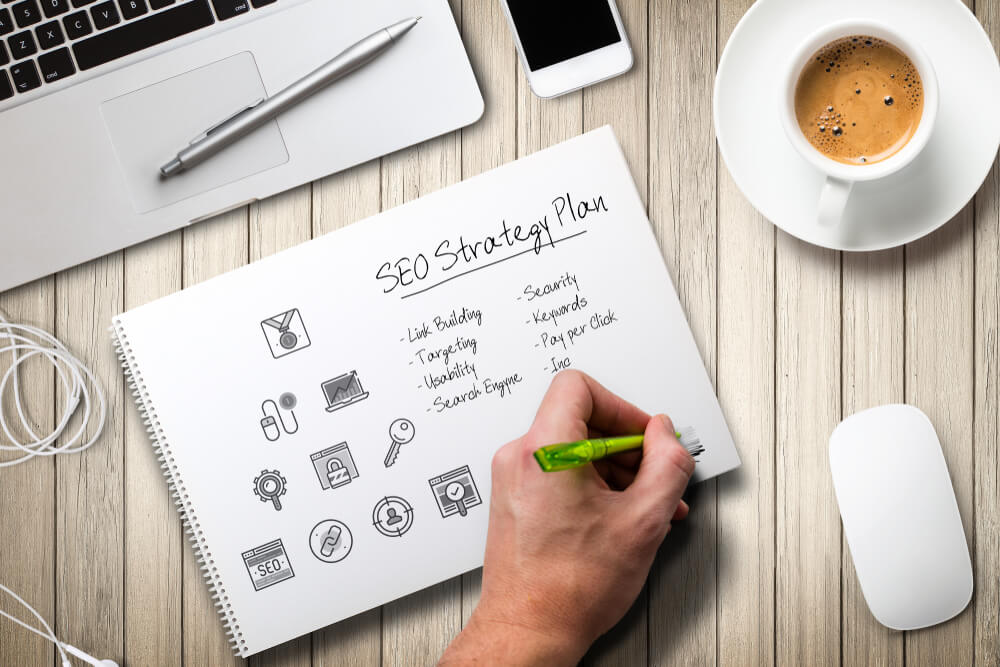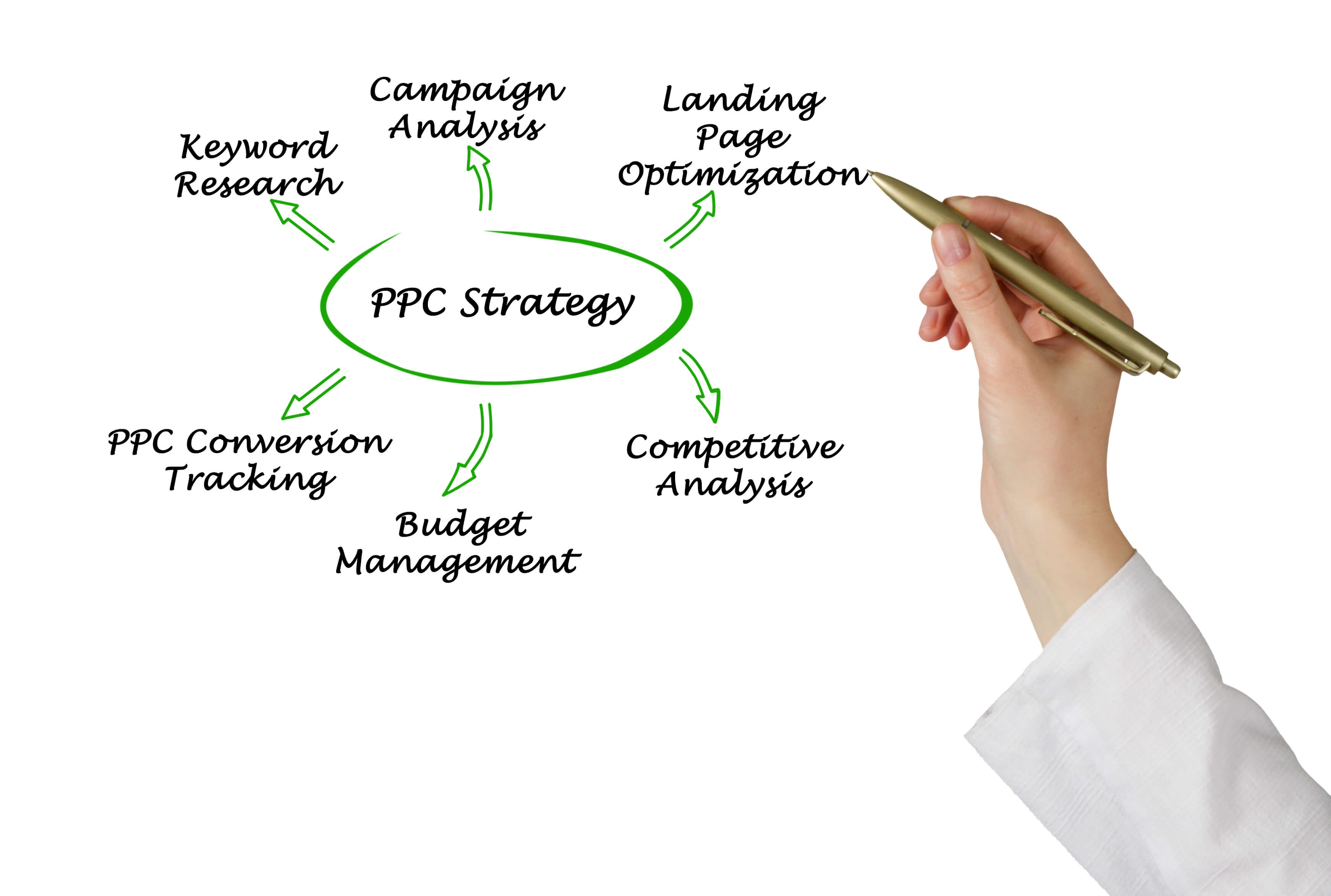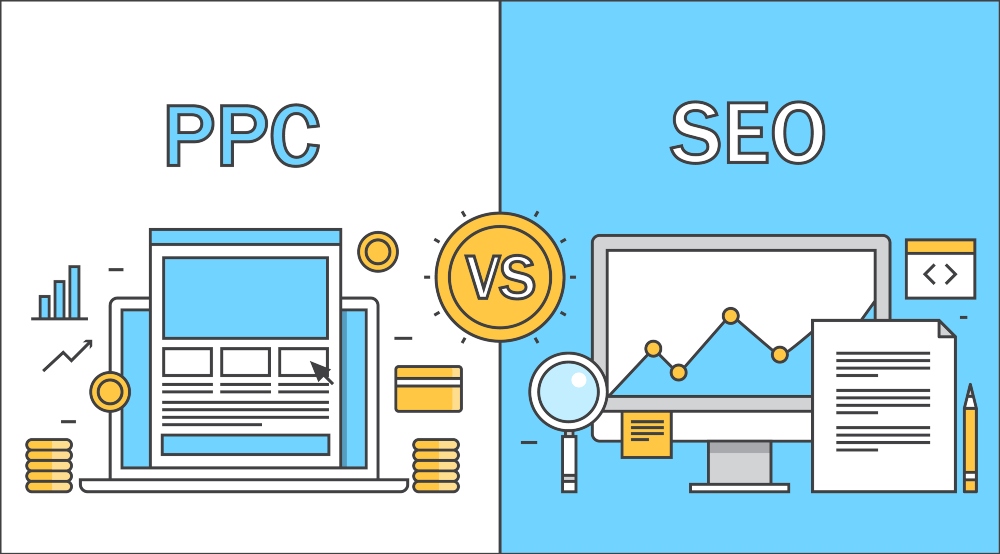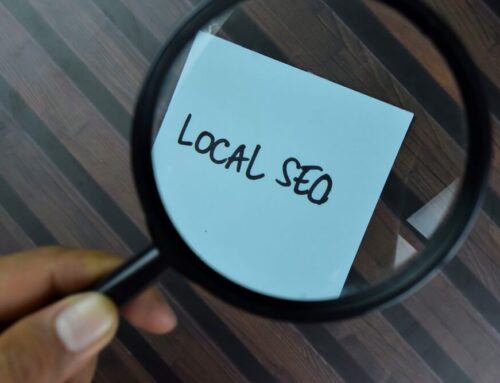Once you build a website for your company, everybody wants to know how you plan to push it to the top of search rankings; how you will make sure consumers can find your site when searching for your services and products.
Two primary solutions to leveraging a website’s value to earn higher placement in search results are to employ PPC and SEO campaigns.
Both PPC and SEO have benefits particular to their strategy, and one strategy is usually more favorable than another when evaluating the type of business, budget, and goals. Once you have the ropes down on either solution, you can run PPC and SEO campaigns side by side for the maximum ranking results.
Today, we’ll break down SEO and PPC to the nitty-gritty to give you a better idea of what each solution has to offer on its own, how to know which campaign is a fit for your company and how to decide between the two options.
What are PPC and SEO?
PPC and SEO are two types of advertising that companies use to increase traffic to their website in an effort to boost positioning on Google or other search engines and eventually, turn more interested shoppers into consumers and loyal brand advocates.
PPC and SEO differ in their strategy, investment and use. Let’s take a look at each.
What Is SEO (Search Engine Optimization)
SEO is one of the most popular and frequently repeated strings of letters in digital marketing and advertising. SEO’s popularity is garnered largely by the option to get started with a small or nonexistent budget. It’s also one of the industry’s most obscure ideas, frequently eluding businesses to believe that these few letters will be easy as ever to put into action.
Here’s what SEO is all about:
Define SEO
SEO stands for search engine optimization. It involves a series of steps that a marketing or SEO team continually implements to give a website its best chance at getting Google’s attention and keeping its merit consistent enough to win traffic and shoppers who purchase.
What is an SEO campaign?
An SEO campaign takes several variables into consideration, the most important being Google’s algorithm and a company’s business objectives.
First, marketing teams track Google’s current algorithm guidelines. These are basic expectations that the search engine has laid out to ensure that your website meets the bare minimum sufficiency for showing its digital face to consumers.
If your website is not prim and polished, you can forget about Google ever suggesting its consumers (their searchers, your potential buyers) have a look at it.
On the flip side, if you check off the box on every expectation, you have a fighting chance. From this viable starting point, you have to keep track of every update Google makes on its expectations, meet them and then measure how well you’re meeting the algorithm demands compared to competitors.
Second, the marketing team runs your company’s objectives alongside a Google-tailored website. Is the objective to have more people watch videos? To sign up for the email? To know your brand name? To purchase something?
An SEO strategy takes these two concepts side by side and facilitates their ongoing and ever-evolving partnership.

What is Pay Per Click (PPC) Advertising
PPC is the other common catchphrase floating around the digital marketing and advertising world, and its three little letters can be just as misleading to new business strategists.
Define PPC
PPC stands for pay-per-click advertising. It is a special type of advertising that allows companies to identify the most popular search terms in their market and bid on the phrases and prices that make the most sense for their budget. Companies only pay when somebody actually clicks over from the ad to their site, hence the name.
What is a PPC campaign?
A PPC campaign is intricate and complex. Even though it sounds simple, determining which keywords will yield the most traffic, how much your company can realistically afford to pay for hypothetical best-case results and how to attract the right consumers (the ones who will buy or shop or look or sign up to relinquish personal data) is a full map. It takes time, research and an upfront financial investment.
Ideally, you’ll one day run SEO and PPC campaigns simultaneously. Until then, here are a few differentiating features that can help you decide.

SEO vs PPC Benefits
Benefits of SEO
- Generate high-quality traffic
- Free (if you do all the labor yourself)
- Create digital market leadership position
- Boost PR
- Generate more traffic than through PPC (if done correctly)
- Continual website maintenance due to keeping up with search engine standards.
Benefits of PPC
- Boost traffic to a website
- Increase sales
- Select who sees which ads when
- Control advertising costs
- Analyze data on advertising performance
- Increase brand awareness
- Measure ROI
- Minimal creative effort (can repeat campaigns)
Top Candidates for SEO versus PPC
Some companies are better fits for one or the other type of traffic generation. Take a look below to see which is best for you:
Top Candidates for SEO
- Companies who already have a market for their product/service
- Companies who have the luxury of time on their side
- Companies with flexible CMS contracts
- Goals to become an industry pillar, not a popular fan page
- Companies with a budget to spend: yes, it’s possible to do it on your own for free, but you’ll get more out of it if you either devote all of your time or pay a generous fee to a professional
Top Candidates for PPC
- Small companies with a small budget who need to initiate the traffic driving process
- Companies with events to promote to consumers
- Big companies with big budgets and research teams
Rosy Strategies
Rosy Strategies is a leading provider of marketing solutions to small, medium and growing businesses. We have simple recommendations and software options that facilitate your company’s development as you stride toward its potential.
Reach out to our team to learn more about the solutions we offer and find out how our experts would advise you. We look forward to working with you!










